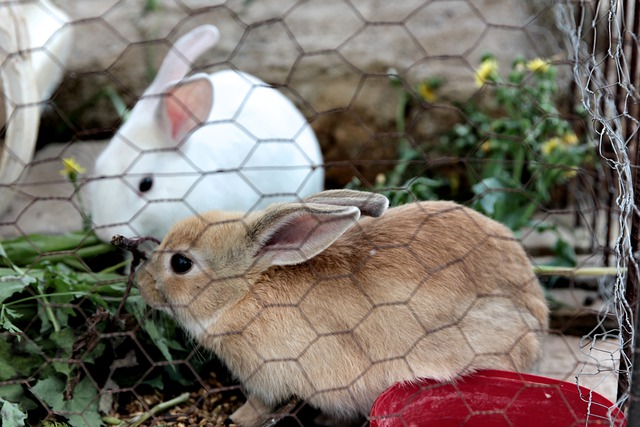Once you notice the rabbit has conceived, just like humans, you need to start caring for her.
Make the house comfortable and offer nutritious food to help the pregnancy.
Once your rabbit had babies, don’t touch them in the first week because the mother rabbit can smell the scent of your hand and get angry.
She may not want to feed her for a while but will not reject her or eat it as some claimed.
Once the baby rabbits are a week old plus, they will start seeing and can locate their mother easily and suck the breast.
Ensure their house is clean and prevent loud noise as much as possible so they don’t suddenly die from a heart attack.
Lactation in Rabbits
During the suckling session, which actually lasts for about five minutes, the baby rabbits can consume a volume of milk which can be up to 20% of its own weight.
In the first weeks of life, the blind born kittens are dependent on their mother’s milk as their main food.
Then you need to feed the mother rabbit well so she can feed her babies.
After about three weeks after birth, the baby rabbits begin to leave the nest.
Then, they can start moving around and follow their mother.
The rabbit’s daily milk yield reaches its peak between the 19th and 23rd day after littering if a mixed feed is taken at will.
Also, after three weeks of life, the proportion of mother’s milk in the nutrients absorbed by young animals is still about 90%.
The volume of milk produced by the mother depends on the quality of feed, the amount of feed given daily, breed, and hereditary predisposition.
In our last publication on rabbit feeding rules, we opined that fresh green fodder should constitute more than half of the rabbit’s feeds.
During lactation, however, you should offer varieties of quality foods, from green fodder, fresh tuber, and leafy vegetables, herbs, and fruits.
Mother rabbits usually lose weight during lactation, so they should be fed well to regain the lost weight.
If the rabbit is not fed sufficiently during the suckling period, the drop in suckling performance in the litters is also greater due to exhausted body reserves.
The shorter the litter period, the more nutritious the feed is given to the rabbit should be.
Extending the suckling period beyond 5 weeks no longer brings any advantages for the young animals.
After one month, the milk yield drops significantly, and at the 8th week, 10% of the milk yield can be expected compared to the 3rd week.
Often, milk production will stop completely at this point.
Weaning Baby Rabbits
You can wean the baby rabbits after three weeks and three days of life.
As a rule, you can separate the baby rabbits from their mother once they’re one month old.
If you also notice the mother is not producing enough milk to feed the babies, you can wean them.
In practice, various models for weaning have become established.
Sometimes, the young rabbits are left with the doe until the eighth week of life.
If you lose the nursing mother during lactation, you’ll need to continue feeding them with milk.
Baby bunnies grow rapidly during their first five weeks of life, this is the period they’re also dependent on breast milk.
You can substitute the breast milk with goat milk or kitten milk replacer (KMR), don’t use milk meant to be taken by a man.
KMR is available in any quality pet store, and you can add non-sugar whipping cream to the KMR or goat milk to increase the calories and make it rich like the mother’s breast milk.
